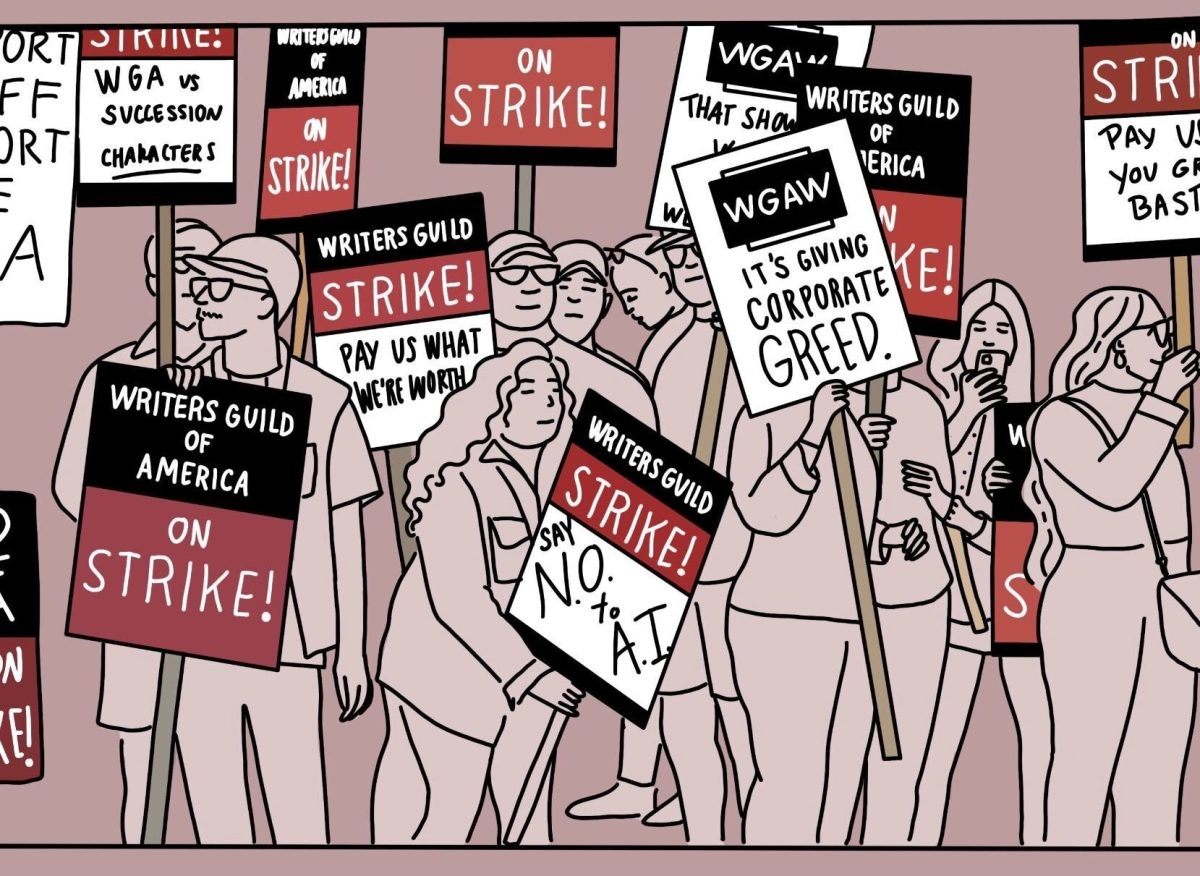On July 14, for the first time in 63 years, members of SAG-AFTRA joined the Writer’s Guild of America (WGA), to strike against the Alliance of Motion Picture and Television Producers (AMPTP). This strike is the result of certain ongoing disputes between Hollywood and its actors and writers, primarily involving worker’s wages and Hollywood’s use of artificial intelligence (AI).
Most strikes happen to bargain for more pay or better working conditions. The recent WGA and SAG-AFTRA strike is no different. The actors and writers are striking over higher pay and a better pension plan, similar to the actor/writer strike of 1960. However, this time, there’s a new bargaining subject: AI.
Over the past year, AI has risen in accessibility, and corporations have jumped at the opportunity to replace people with machines. The company that created ChatGPT, OpenAI, estimated that at least 80% of the U.S. workforce would have 10% or more of their jobs affected by some type of AI.
Though it seems like AI would mostly affect tech jobs, it’s a major concern for Hollywood writers and actors. Members of WGA fear that large language models like ChatGPT will replace them in writing for television. Advanced “digital double” tech can clone the physical likeness of actors, and using previous recordings they can mimic the actors’ speech patterns. This would push actors and writers out of real jobs, and it’s become one of the main reasons the WGA and SAG-AFTRA are on strike.
However, corporations don’t seem to mind. In an interview for Fox Business in May, Disney executive Bob Iger indicated that a complete ban on AI is unlikely, even if it disrupts the careers of actors and writers, stating: “It’s pretty clear that AI represents some pretty interesting opportunities for us, and some substantial benefits.”
However, as new AI develops, Hollywood is likely to see certain jobs in the industry disappear. After all, it would be more efficient for corporations who can afford it to use AI images of actors instead of paying them, or to replace script-writers with a chatbot. But people need jobs– and thus it would be in the interest of SAG-AFTRA and WGA to negotiate for regulations on AI, such as continuing to pay an employee whose likeness is replicated by AI.
As regular citizens, spreading information about the impact of AI on the recent strikes is important. Corporations need to know that their viewers are paying to watch content made by these actors and writers, and would rather have real people behind their entertainment, not machines. Outside of large industries, it’s still crucial to consider the effects of a wild card such as AI, especially as younger generations enter a world with such technology.
Ultimately, Hollywood needs to know its audience and recognize the importance of implementing regulations on AI, as well as raising pay and residuals for its workers. Writers and actors are a major part of the backbone of the industry, and compensating them for their labor is crucial.
Hollywood Needs to Listen to Worker Unions
Bella Yi, Heritage Editor-in-Chief
August 24, 2023
Raising their red, white, and black signs, WGA strikers gather in protest. The union has been on strike since July, advocating for better pay and improved regulations on AI.
3
About the Contributors

Bella Yi, Heritage Editor-in-Chief
Class of 2026
Howdy!! I’m excited to be on student press this year and can’t wait to create for the Horizon and Heritage. In my free time, you can find me playing video games, playing piano, baking, painting, and cracking bad jokes.

Hadley Norris, Graphics Editor
Class of 2024
I look forward to designing graphics this year, you can always find me in the caption :)

